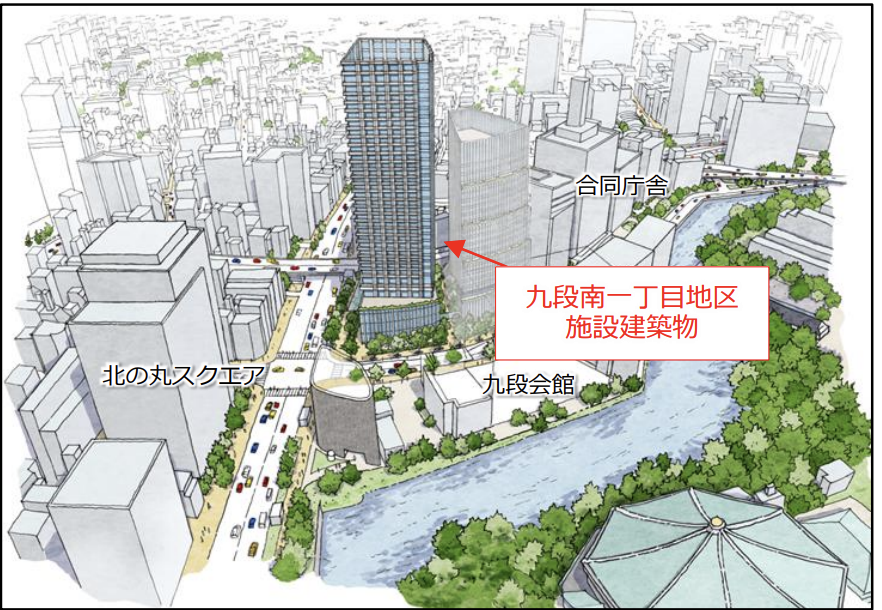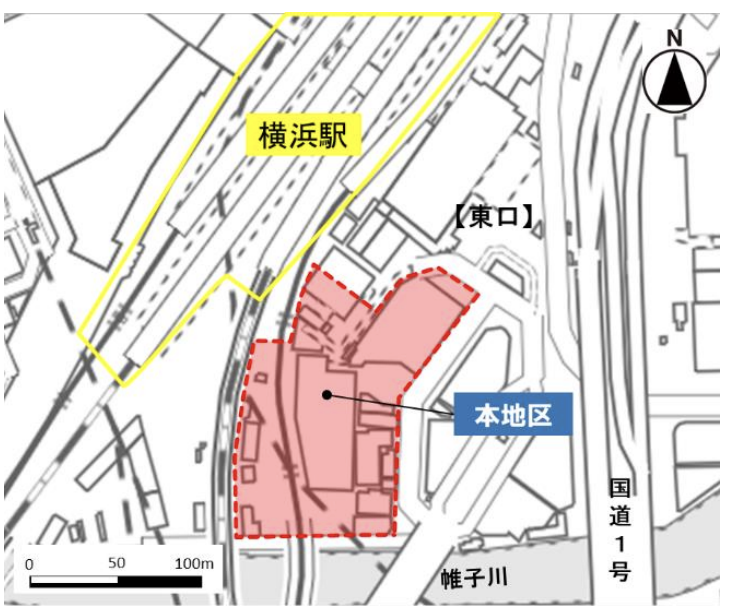Utilizing a condominium purchased as a home as a rental property is an effective asset management method to generate stable rental income. In recent years, an increasing number of people are considering renting out their condominiums due to the diversification of work styles and changing values regarding housing.
When renting out condominiums owned by individuals, there is a possibility of unexpected problems and losses if the proper procedures are not followed.
In this article, INA & Associates, Inc. provides detailed explanations based on our practical experience, from the basic flow of condominium rental to how to choose a rental management company, legal precautions, and profit calculation. We will systematically convey the necessary knowledge to those who are considering renting out condominiums so that they can start their rental management with peace of mind.
Basic Flow of Condominium Leasing
In order to successfully rent out a condominium, systematic preparation and implementation of appropriate procedures are essential. Here, we will explain in detail each step of the process from the start of lending to the start of operations.
Preparation before renting out
The first step in renting out a condominium is to understand the current status of the property and make the necessary preparations. First, check the management agreement of the condominium to see if there are any restrictions on renting. Many condominiums for sale have reporting requirements and restrictions regarding rentals, so it is necessary to confirm these in advance.
Next, we inspect the condition of the property in detail and remodel or clean as necessary. To make the property attractive to tenants, it is important to check the operation of equipment, check the condition of wallpaper and flooring materials, and clean the water system. In particular, prior inspection and repair of facilities such as air conditioners and water heaters are essential, as malfunctions can greatly affect tenant recruitment.
Another important preparation item is the preparation of documents required for the lease. Preparing in advance a certified copy of the registry, property tax assessment certificate, building plans, facility specifications, etc. will facilitate the contract with the rental management company and tenant recruitment.
Contract with Rental Management Company
Once the property is ready, a reliable rental management company is selected and a management contract is signed. The rental management company is a partner that handles important aspects of rental management, from tenant recruitment to daily management.
The management agreement clearly defines the scope of management services, management fees, contract period, and cancellation terms. Typical management services include tenant recruitment, contract procedures, rent collection, handling complaints, attending move-outs, and arranging for restoration work. The standard management fee is approximately 5% of the rent, but it varies depending on the services provided.
The form of contract should also be carefully considered. In a general mediation contract, you can request multiple management companies, but in a full-time mediation contract or under-exclusive-contract exclusive duty mediation contract, instead of being limited to one company, more aggressive sales activities can be expected.
From tenant solicitation to contract
After a contract with a leasing management company is completed, tenant recruitment is started. For effective recruitment activities, it is important to set appropriate rent and create attractive property information.
Rent setting involves a comprehensive judgment based on a survey of the surrounding market, an evaluation of the property's features and location, and consideration of facilities and age of the building. If the rent is too high, tenants will not move in, and if the rent is too low, profitability will decline, so a balanced rent setting is necessary.
In preparing property information, detailed floor plans, photographs, a list of facilities, and information on the surrounding environment should be included. Photographs are especially important to make a first impression on prospective tenants, so it is important to take bright, clean photos.
Once a prospective tenant appears, we proceed with preliminary inspections, tenant screening, and contract signing procedures. During the screening process, we carefully assess the tenant's ability to pay rent by verifying proof of income, workplace, and guarantor.
Management after the start of operation
Once a contract has been signed with the tenant and the property has been handed over, daily management operations begin. Major tasks include rent collection management, facility trouble shooting, periodic inspections, renewal procedures, and move-out procedures.
Rent collection management includes confirming monthly rent payments, reminding tenants in arrears, and liaising with the guarantee company. In the event of equipment problems, it is important to choose a management company that has a 24-hour response system, as a prompt response directly affects tenant satisfaction.
In addition, at the time of contract renewal, the company will appropriately consider rent revisions, review contract terms, and carry out renewal procedures. When a tenant moves out, it is necessary to promptly attend the move-out, restore the property to its original condition, settle the security deposit, and recruit the next tenant.
| Phases | Main work items | Time required | Points to note |
|---|---|---|---|
| Preparation stage | Confirmation of management agreement, property inspection, remodeling, preparation of documents | 1-2 months | Be sure to check the restrictions in the management agreement |
| Management company selection | Company comparison, contract negotiation, contract signing | 2-3 weeks | Clarify the scope of management services |
| Tenant Recruitment | Set rent, create property information, recruit | 1-3 months | Setting appropriate rent is important |
| Contract signing process | Pre-viewing, tenant screening, signing a contract | 1-2 weeks | Careful screening of tenants |
| Start of operation | Rent control, facility support, renewal and move-out support | Ongoing | Quick response improves tenant satisfaction |
Key Points in Selecting a Rental Management Company
The selection of a rental management company is one of the most important factors affecting the success of condominium rental. By selecting the right management company, you can secure stable rental income, improve tenant satisfaction, and reduce the burden on the owner.
Types and Characteristics of Management Companies
Rental management companies are classified into several types according to their size and characteristics. Management companies affiliated with major real estate companies provide a wide range of services, leveraging their extensive experience and nationwide network. On the other hand, community-based management companies are characterized by their knowledge of the local market and detailed services.
Advantages of major management companies include systemized business processes, extensive warranty programs, a 24-hour response system, and an extensive tenant database. However, frequent changes in personnel and personalized service may be difficult to obtain.
Advantages of community-based management companies include sales activities based on a thorough understanding of local characteristics, close communication with owners, and flexibility. However, the scope of services may be limited or insufficiently systematized.
In recent years, new types of management companies have emerged that utilize IT. These companies are characterized by online operational efficiency, optimization through data analysis, and improved cost performance.
Selection Criteria and Comparison Items
When selecting a rental management company, it is important to compare multiple companies. The main items to compare include management performance, service content, management fees, service area, financial condition, and quality of personnel.
With regard to management performance, check specific figures such as the number of units managed, occupancy rate, average vacancy period, and owner retention rate. In particular, whether the company has a track record in the same area or the same type of property is an important factor in making a decision.
In terms of service content, we will check details such as tenant recruitment methods, whether there is a rent guarantee system, maintenance system, frequency of providing reports, and emergency response. Another important factor is the progress of digitalization and the availability of web services for owners.
Management fees are judged for appropriateness in light of the services offered. It is important to evaluate cost-effectiveness comprehensively, rather than simply choosing the cheapest company.
Differences in Contract Types
There are three types of contract forms in rental management: a general mediation contract, a full-time mediation contract, and a under-exclusive-contract exclusive duty mediation contract. Since each has its own features and merits and demerits, it is necessary to choose according to the characteristics of the property and the needs of the owner.
In a general mediation contract, you can request multiple management companies at the same time. While active sales activities can be expected due to the principle of competition, the locus of responsibility may become ambiguous and information management may become complicated.
In a full-time mediation contract, only one company is requested, but it is also possible for the owner himself to find a tenant directly. Since the management company is full-time, it conducts more active sales activities and is obliged to report regularly.
In a under-exclusive-contract exclusive duty mediation contract, it completely entrusts to one company, and a direct contract by the owner himself is also prohibited. Since it is the most advantageous contract form for a management company, it is more likely to have sales activities performed with the highest priority.
| Comparison | Major management companies | Community-based | Specialized in IT |
|---|---|---|---|
| Number of units under management | Tens of thousands of units or more | Hundreds to thousands of units | Several thousand units |
| Service Area | Nationwide | Specific area | Major urban areas |
| Management fee | 5% (5%) | 5-10% (5% to 10%) | 1-3% (1-3%) |
| Systematization | High | Medium | Very high |
| Individualized | Low | High | Medium |
| 24-hour support | Yes | Limited | Yes |
| Warranty Program | Full | Limited | Full |
Legal Matters to Check Before Lending
Before renting out a condominium, it is important to fully understand the relevant legal matters and take appropriate action. Overlooking legal issues can lead to major problems and losses later on.
Restrictions under the Condominium Unit Ownership Law
The Law Concerning Building Unit Ownership, etc. (Unit Ownership Law) applies to the leasing of condominiums for sale. This law imposes certain restrictions on the use of exclusive areas, which may also affect leasing.
Article 6 of the Act on Building Unit Ownership stipulates that condominium unit owners shall not engage in any acts detrimental to the preservation of the building or any other acts contrary to the common interests of condominium unit owners in the management or use of the building. Although rental activities themselves are not restricted in principle, proper management is required so that residents' activities do not cause inconvenience to other compartmentalized owners.
In addition, there may be restrictions on renting by resolution of the management association. For example, there may be a requirement to notify in advance when renting, criteria for screening tenants, prohibition of short-term rentals, and so on. Violation of these restrictions may result in a request for correction by the management association, or in the worst case, an auction of the condominium interests.
Points to check the management agreement
The management agreement of a condominium sets forth the rules specific to that condominium, and may contain important restrictions regarding rentals. Before renting out the property, the management agreement should be reviewed in detail to ensure that there are no restrictions on renting.
The main items to check include: whether or not the apartment can be rented, notification requirements at the time of rental, restrictions on tenants' qualifications, restrictions on contract terms, prohibitions on subletting, whether or not pets are allowed, restrictions on playing musical instruments, and restrictions on remodeling work.
Of particular note are restrictions on short-term rentals such as private accommodations and shared houses. In recent years, many condominiums have amended their management regulations to prohibit private accommodations, and strict measures may be taken in the event of a violation.
It is also necessary to confirm the obligation to notify the management association when renting. If notification is required, information such as the name of the tenant, contact information, and contract period must be submitted to the management association.
Tax Considerations
Rental income from condominium rentals is subject to income tax as real estate income. In order to ensure proper tax treatment, it is necessary to understand the relevant tax laws and properly implement the necessary procedures.
In calculating real estate income, taxable income is the amount of rental income minus necessary expenses. Necessary expenses include management fees, repair reserve funds, management consignment fees, repair expenses, depreciation, property taxes, city planning taxes, property insurance premiums, and interest on loans.
As for depreciation, only the building portion is subject to depreciation; the land portion is not. In the case of condominiums, the value of the building and the land are appropriately prorated, and the building portion is depreciated based on its statutory useful life. The legal life of a reinforced concrete residential building is 47 years.
In addition, by electing to file a blue tax return, the blue tax return special deduction (up to 650,000 yen) can be applied. In order to file a blue tax return, prior notification to the tax office is required, and bookkeeping using double-entry bookkeeping and preparation of a balance sheet and profit and loss statement are required.
| Items to be verified | Confirmation details | Where to check | Points to note |
|---|---|---|---|
| Management Regulations | Rental availability, notification obligation, restrictions | Management Association | Check the revision history |
| Bylaws | Specific rules of use | Management association | Obtain the latest version |
| Statement of Important Matters | Restrictions at the time of purchase | Documents at the time of purchase | Check for changes |
| Building Standard Law | Use restrictions, building restrictions | Administrative Agency | Check if the building is not illegal |
| Fire Defense Law | Fire prevention and evacuation equipment | Fire department | Conformity with residential use |
| Tax Law | Real estate income, consumption tax | Tax office | Blue Return Considerations |
Rent Setting and Income Calculation
Proper rent setting is an important factor in determining the success of condominium rentals. If rents are too high, tenants will not move in and vacancy periods will be prolonged; if rents are too low, profitability will suffer. It is important to accurately grasp the market rate and set an appropriate rent that takes into account the characteristics of the property.
How to Calculate Appropriate Rent
To calculate the appropriate rent, it is important to make a comprehensive judgment by combining multiple approaches. The main calculation methods include the market comparison method, the capitalization method, and the cost approach.
The market comparison method is a method of setting rents by researching the market rents of similar properties in the surrounding area and comparing them to your own property. Factors such as location, age, floor plan, facilities, and management status are comprehensively compared, and the difference from the market price is adjusted. This method is the most common and practical method of calculation.
The Income Capitalization Method is a method of setting rent by calculating backward from the expected yield. A target yield is set for the purchase price of the property and the investment amount, and the appropriate rent is calculated from there. This method is particularly effective when the property is purchased as an investment property.
The cost method is a method of setting rent that takes into account the property's acquisition cost, maintenance costs, and expected profit. However, it is generally used in combination with other methods because it is difficult to reflect the supply-demand relationship in the market.
Seasonal factors should also be considered when setting rents. Generally, from January to March, when many people transfer or go on to higher education, demand is high and slightly higher rents can be set. On the other hand, demand declines during the summer months, so flexibility is required.
Initial and Operating Costs
Condominium rentals incur a variety of initial and ongoing operating costs. It is important to accurately grasp these costs and reflect them in the profit calculation.
Initial expenses include remodeling and cleaning costs, brokerage fees to the management company, advertising costs, fire insurance premiums, and various procedural costs. Remodeling costs vary greatly depending on the condition of the property, but in general, the standard cost is between 10,000 yen and 30,000 yen per square meter.
Operating expenses include management consignment fees, management and repair reserve funds, fixed property tax and city planning tax, fire insurance premiums, repair expenses, and expenses incurred when the property is vacant. Since these expenses are deducted from rent income, they have a significant impact on actual income.
Management fees range from 5% to 10% of rent, but vary depending on the services provided. Management fees and reserve for repairs incur a fixed amount each month and tend to increase with the age of the building.
Costs during vacancy are also an important consideration. Since expenses such as management fees, reserve for repairs, and property taxes will continue to accrue during the vacancy period, the annual vacancy rate should be assumed when calculating income.
Basis of Yield Calculation
Yield is widely used as an indicator to evaluate the profitability of real estate investment. Yields include surface yield (gross yield) and real yield (net yield), each of which has a different meaning.
The surface yield is the annual rental income divided by the property price, and is used as a simple profitability indicator. The formula is "annual rental income ÷ property price × 100. However, since operating expenses are not taken into account, there may be a discrepancy with the actual profitability.
The actual yield is the annual rental income minus operating expenses divided by the actual investment amount, which is the property price plus acquisition costs. The formula is "(annual rental income - annual operating expenses) ÷ (property price + acquisition costs) × 100. It is important to use the real yield when making investment decisions, as it represents profitability that is closer to reality.
Generally, the surface yield for condominiums in central Tokyo is 3% to 5%, and 5% to 8% in the suburbs. However, detailed analysis is required for each individual property, as it varies greatly depending on the location, age, and condition of the property.
| Cost Item | Approximate amount | Period of Occurrence | Remarks |
|---|---|---|---|
| Remodeling cost | 500,000-2,000,000 yen | First time only | Depends on the condition of the property |
| Brokerage fee | 1 month rent | At the time of contract | Varies depending on the management company |
| Management fee | 5-10% of rent | Monthly | Varies depending on services |
| Management fee and repair reserve fund | 10,000-30,000 yen/month | Monthly | Tends to increase with building age |
| Property tax, etc. | 100,000-300,000 yen/year | 4 times a year | Determined by assessed value |
| Fire insurance | 10,000-30,000 yen/year | Once a year | Depends on the contents of coverage |
| Repair cost | 5-10% of rent | As needed | Increases with building age |
Conclusion
Condominium rental is an effective asset management method that can generate stable rental income with proper preparation and procedures. The following key points are essential for success.
First, it is important to thoroughly prepare in advance. It is necessary to check the management agreement, inspect the condition of the property, prepare all necessary documents, and fully understand the legal restrictions. In particular, be sure to check the restrictions under the Unit Ownership Law and the Management Regulations in order to avoid problems later on.
Next, selecting a reliable rental management company is the key to success. It is important to select the right company as a long-term partner by comprehensively comparing and evaluating their management track record, service offerings, fees, and responsiveness. The type of contract should also be carefully selected based on the characteristics of the property and your own needs.
Appropriate rent setting also greatly affects profitability. It is important to set rents that strike a balance between vacancy risk and profitability by researching market rates, analyzing property characteristics, and comparing with competing properties.
Appropriate tax treatment must also not be forgotten. Proper tax treatment, such as calculating real estate income, organizing necessary expenses, and considering a blue tax return, will help maximize take-home income.
Finally, ongoing management and improvements will lead to long-term success. It is important to approach rental management with a constant awareness of improvements, such as increasing tenant satisfaction, maintaining property values, and responding to market trends.
Condominium rental is not an easy investment, but with the proper knowledge and preparation, it can provide a stable income. If you have any questions or need professional judgment, we recommend that you consult with an experienced real estate agent.
INA&Associates Inc. provides comprehensive support for condominium rentals. From property assessments to the selection of a management company and tax consultation, we provide full support for your rental management. If you are considering renting out your condominium, please do not hesitate to contact us.
Frequently Asked Questions
Q1: What are the fees for hiring a management company?
Generally, the management fee to a rental management company is about 5% of the rent. For major management companies, it is 5%, and for community-based companies, it is generally between 5% and 10%. However, commissions vary depending on the services provided.
The standard broker's fee when recruiting tenants is equivalent to one month's rent, but some management companies offer half a month's rent or even free of charge. In addition, there may also be fees for renewing a contract, attending to tenants when they move out, and arranging for restoration work, so it is important to confirm the details before signing a contract.
Q2: How should I handle problems with tenants?
It is important to respond promptly and appropriately to problems with tenants. First, clarify the scope of troubleshooting in the contract with the management company. The management company will handle general complaints, equipment breakdowns, and neighborhood problems, while the owner and management company will work together to handle serious contract violations and legal issues.
To prevent problems before they occur, it is important to provide thorough explanations at the time of moving in, and to clearly communicate the management regulations and rules of use. In addition, regular property inspections and communication with tenants can help detect small problems early and prevent them from developing into major problems.
Q3: Are there any precautions to take when filing tax returns?
Rental income from condominium rentals must be declared on your tax return as real estate income. The taxable income is the amount obtained by deducting necessary expenses from the rental income. Necessary expenses include management fees, reserve funds for repairs, management fees, repair expenses, depreciation, property taxes, insurance premiums, etc.
By electing to file a blue tax return, you can receive a special blue tax return deduction of up to 650,000 yen. However, prior notification and double-entry bookkeeping are required. In addition, since only the building portion of the property is subject to depreciation, and the land portion is not, appropriate proportional calculations are required.
Q4: Is there any way to reduce the risk of vacancy?
A combination of multiple approaches is effective in reducing the risk of vacancy. First, it is important to maintain market competitiveness by setting appropriate rents. Rents that are too high compared to market rates will lead to prolonged vacancy periods.
Improving the attractiveness of the property is another important factor. Regular maintenance, updating of facilities, and freshening up of interiors will keep the property attractive to tenants. You can also reduce the risk of vacancy by choosing a management company that offers a rent guarantee program.
Q5. Is it possible to change the rent during the contract period?
Rent changes during the contract period are restricted by the Land and House Lease Law. For rent increases, there must be a justifiable reason, such as an increase in the price of the land or building, an increase in taxes, an increase in the surrounding market rate, or a change in economic circumstances. If there is a clause in the contract regarding rent revision, the procedure is carried out in accordance with the content of the clause.
Rent reduction is also possible when the circumstances are the opposite of those described above. However, if an agreement cannot be reached with the tenant, it may be necessary to resolve the issue through mediation or litigation. When considering a rent modification, we recommend that you carefully consider whether the legal requirements are met and consult with a specialist if necessary.

Daisuke Inazawa
Representative Director of INA&Associates Inc. Based in Osaka, Tokyo, and Kanagawa, he is engaged in real estate sales, leasing, and management. He provides services based on his extensive experience in the real estate industry. Based on the philosophy that “human resources are a company's most important asset,” he places great importance on human resource development. He continues to take on the challenge of creating sustainable corporate value.

.png)













